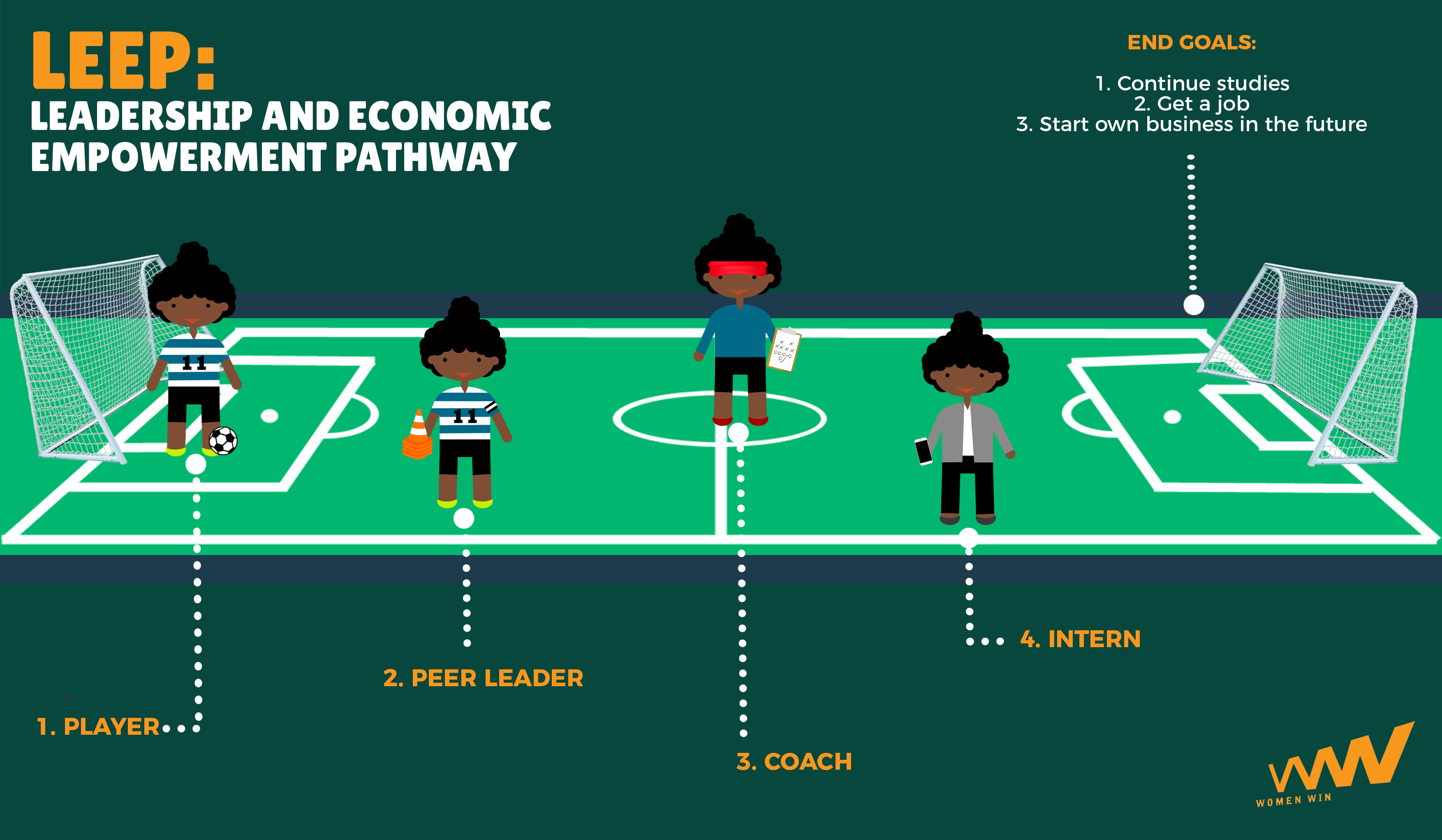Women Win has demonstrated that sport can have a powerful effect on building the economic, emotional and physical self-determination of girls, as well as changing the cultural limits they face.
In this update, Women Win highlights that peer leadership and a rights-based approach are important aspects of programmes aiming to economically empower adolescent girls. Organisations that place peer leadership at the centre of their programmes will provide a pathway for adolescent girls and young women to gain valuable leadership and transferable life and livelihood skills, achieve economic empowerment and, ultimately, exercise their rights. Women Win believes these Leadership and Economic Empowerment Pathways (LEEP) can be specifically and intentionally integrated into adolescent girls’ sport programme design.
The rationale for peer leadership, and integrating LEEP into your programme design, is summarised by University of Stirling Professor Fred Coalter and John Taylor in their 2010 Sport for Development Impact Study, in which they state:
“In community-based sport-for-development projects peer leaders play a central role: to reduce costs and contribute to sustainability; to enable learning via relevant role models; to provide development opportunities for programme participants.” [1]
Women Win believes a focus on Leadership and Economic Empowerment Pathways (LEEP) can support economic empowerment for girls while lowering the cost per participant (CPP) and lead to organisational benefits. As girls gain the skills to be effective peer leaders and coaches, some will have the interest and ability to learn the broader skills needed to become programme managers able to sustain and scale a sport programme. Creating this career path for AGYW is both a design and operational challenge for any organisation. It requires rethinking the lifespan of a sport programme, and the plans for concluding programme implementation. While this approach requires a period of initial investment in training at the peer leader, coach and intern skill levels, Women Win programme partners applying peer leadership models report that they see the benefits of scaling impact and lowering CPP over time.

[1] Coalter F & Taylor J (2010). Sport-for-development impact study: A research initiative funded by Comic Relief and UK Sport and managed by International Development through Sport.